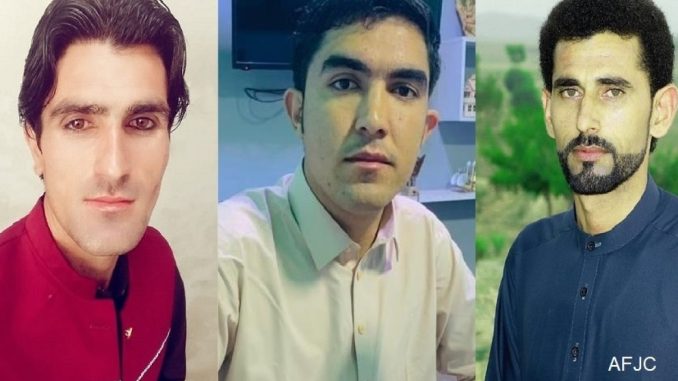
According to reports by Committee To Protect Journalists (CPJ) and Afghanistan Journalists Center (AFJC), three radio journalists were arrested by the provincial directorate of the Taliban-controlled Ministry for the Promotion of Virtue and Prevention of Vice in Afghanistan on April 21.
The journalists – Ismail Saadat of Naz FM Radio, Wahidullah Masum of Iqra FM Radio, and Ehsanullah Tasal of Wolas Ghag, were detained after being summoned and questioned about broadcasting music and talking to female callers during the holiday of Eid al-Fitr earlier this month.
On April 23, the department of virtue and vice in Khost province confirmed this through a message in the joint group of this department and journalists on WhatsApp: “Media were advised multiple times not to include background music in programs or to make phone calls in entertainment programs with women as it is forbidden. Those who violated this order were sentenced to prison by the department and will be charged for not implementing the laws of the Islamic Emirate (Taliban) and will be introduced to the court in the future.”
The Taliban outlawed playing and listening to music when they retook control of Afghanistan in August 2021.
Last month, the Taliban police chief in Khost Province banned women and girls from phoning broadcasters, the AFJC said, adding that female listeners sometimes called in to ask questions on educational programs.
Afghanistan is the only country in the world where girls are banned from high school.
“The detention of Afghan journalists Ismail Saadat, Wahidullah Masum, and Ehsanullah Tasal is only the latest example of the Taliban’s ruthless suppression of the press since the group returned to power in 2021,” said Carlos Martinez de la Serna, CPJ’s program director, in New York “The Taliban must immediately and unconditionally release all detained journalists and allow the media to operate without restrictive measures like bans on women callers.”
AFJC demanded the immediate and unconditional release of the journalists and called for the cancellation of directives that severely restrict media freedom in the country.
Photo: AFJC
This story first appeared on RadioInfo.asia
